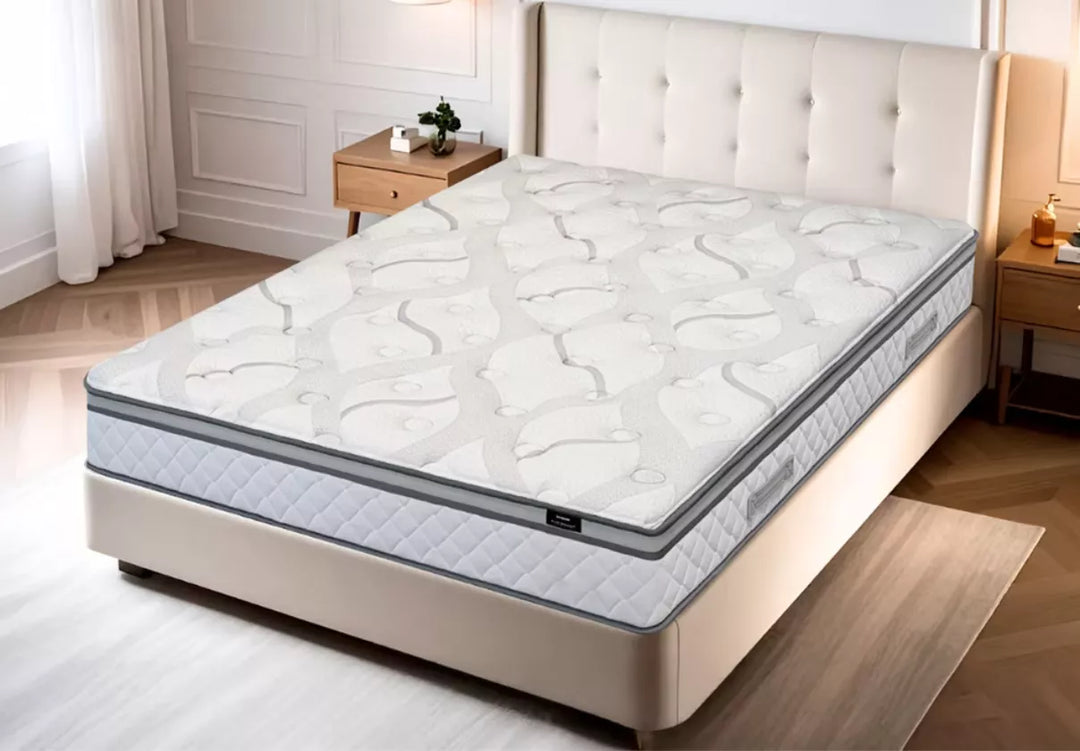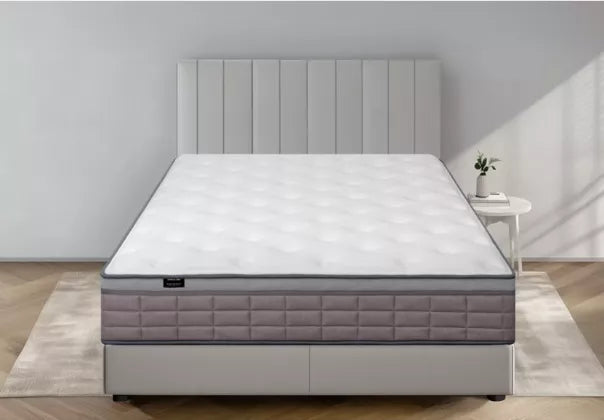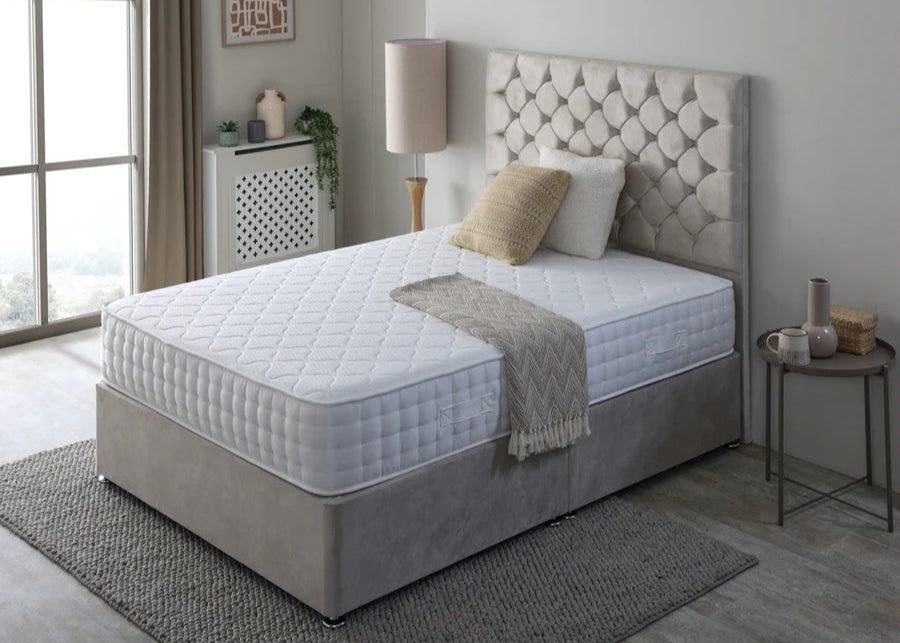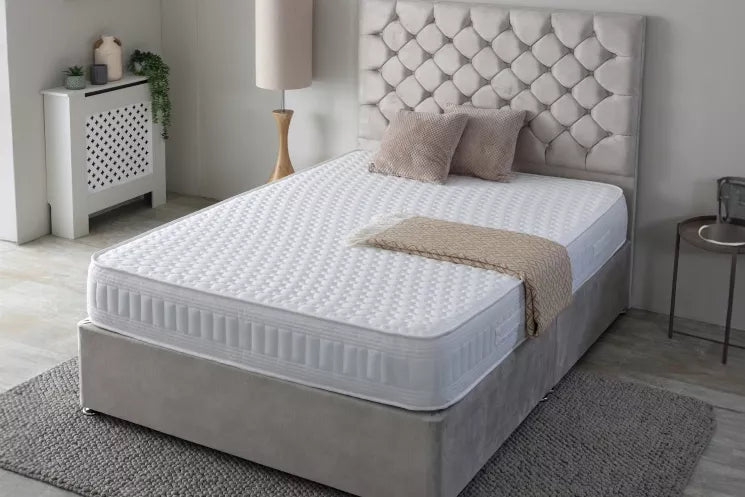4th June 2025
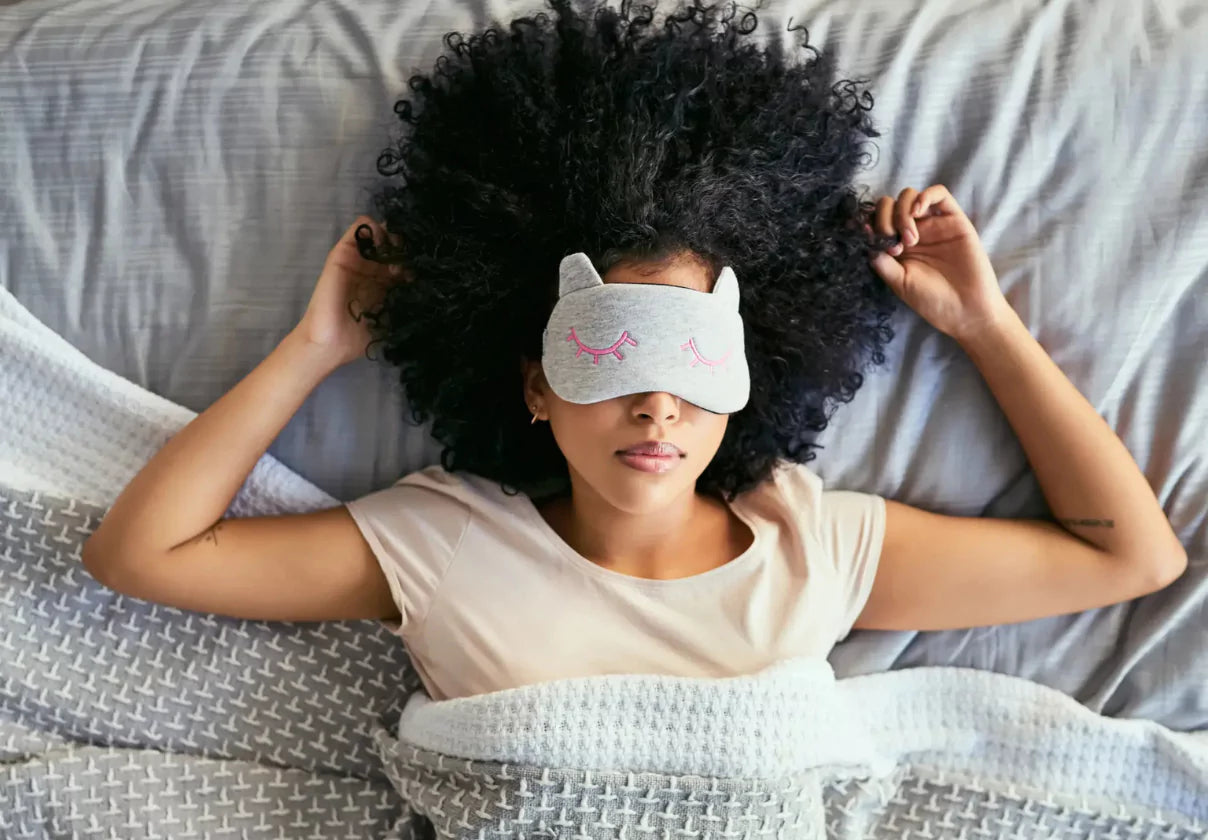
Menopause marks a powerful turning point in a woman’s life — a time of change, growth, and yes, challenges. As hormones shift and the body adjusts, one of the most frustrating symptoms to surface is disrupted sleep, leaving many women tossing, turning, and exhausted.
In this blog, we aim to delve into the intricate relationship between menopause and sleep, examining how the hormonal fluctuations that accompany this phase can play a pivotal role in nighttime disturbances. From hot flashes and night sweats to shifts in mood and stress levels, there is an array of factors that conspire to disrupt what was once a peaceful night's rest.
Understanding Menopause
Menopause can dramatically affect a woman's sleep patterns, leading to a range of disturbances. One of the most prominent culprits is hot flashes — sudden, intense surges of heat that can disrupt sleep at any time, particularly at night. These episodes often cause sweating, discomfort, and a rapid heart rate, leaving women drenched and unable to return to restful slumber, fragmenting their sleep cycle.
Hormonal fluctuations, especially declining oestrogen and progesterone, can lead to mood swings and anxiety. These emotional changes make it harder to relax and fall asleep. A racing mind, stress, and irritability at bedtime can further prevent the calm needed for quality sleep. As sleep and emotional well-being are closely linked, this creates a vicious cycle of poor rest and heightened distress, significantly affecting quality of life during menopause.
How Menopause Affects Sleep
Hormonal Changes and Mood Swings
The hormonal shifts during menopause — particularly reduced oestrogen — can wreak havoc on emotional well-being. Mood swings, stress, and irritability often become daily challenges, leading to a racing mind at bedtime. This can increase nighttime awakenings and make it difficult to fall or stay asleep.
Sleep Disorders
Menopause increases the risk of sleep disorders such as insomnia — difficulty falling asleep, staying asleep, or waking feeling unrested. Sleep apnoea is also more common, where breathing repeatedly stops during sleep, causing oxygen drops and frequent awakenings. Combined with hot flashes and mood changes, these disorders create a complex web of sleep disruption.
Irregular Sleep Patterns
You might find yourself waking earlier or struggling to fall back asleep after night sweats or disturbances. These irregular patterns can leave you feeling groggy and less refreshed during the day.
Cognitive Impact
Sleep disruption during menopause can impair cognitive function. Memory lapses, trouble concentrating, and decision-making difficulties can become more noticeable, affecting daily life and increasing frustration.
Daytime Fatigue
The effects aren’t limited to nighttime. Poor sleep quality often leads to daytime fatigue, reduced productivity, and mood swings, impacting your energy and overall well-being.
Improving Sleep During Menopause
Menopause is a natural phase that can bring both challenges and growth. One common struggle is disrupted sleep. This guide offers strategies, lifestyle changes, and tips for creating a sleep-friendly environment to help you rest easier and feel more in control during this transition.
Cool Bedroom Environment
Keep your bedroom cool using fans, air conditioning, or cooling mattresses and bedding. Regulating temperature is key during hot flashes and night sweats.
Breathable Bedding
Choose breathable, moisture-wicking materials like cotton or performance fabrics to help manage night sweats and maintain comfort throughout the night.
Stay Active
Regular physical activity can reduce stress and promote better sleep. Aim for at least 30 minutes of moderate exercise on most days.
Mindfulness and Relaxation Techniques
Try meditation, deep breathing, or relaxation exercises to calm your mind and prepare your body for sleep.
Limit Stimulants
Avoid caffeine and alcohol in the evening, as both can interfere with your ability to fall and stay asleep.
Create a Sleep Routine
Stick to a consistent sleep schedule, going to bed and waking up at the same time every day, including weekends.
Sleep-Friendly Mattress
Invest in a supportive, cooling mattress to enhance comfort. Memory foam, latex, and hybrid mattresses can help manage temperature and provide restful support.
Suitable Mattress Types for Staying Cool
Memory Foam Mattresses
High-quality memory foam mattresses contour to your body for personalised comfort. Look for options with gel-infused or open-cell foam to promote airflow and heat dissipation — ideal for managing hot flashes and night sweats.
Latex Mattresses
Natural latex mattresses offer excellent airflow and cooling, along with long-lasting support. They wick away moisture and regulate temperature naturally, making them perfect for managing menopausal symptoms.
Hybrid Mattresses
Hybrid mattresses combine innerspring support with the comfort of foam. Many include cooling features like breathable covers and gel-infused layers, helping regulate temperature and relieve pressure for a better night's sleep.
Cooling Technology
Advanced cooling materials like phase-change or heat-conductive fabrics help maintain a consistent sleep temperature. These cooling mattresses absorb and release heat as needed, easing discomfort from night sweats and hot flashes.
Menopause is a significant life change, and sleep disturbances are a common part of the journey. With the right strategies — including a cool bedroom, breathable bedding, lifestyle changes, and the right mattress — you can improve sleep quality and manage menopausal symptoms more effectively. If sleep issues persist, consult a healthcare professional for additional guidance or treatment options. Prioritising restful sleep can help you embrace this new chapter feeling refreshed, empowered, and well-rested.


